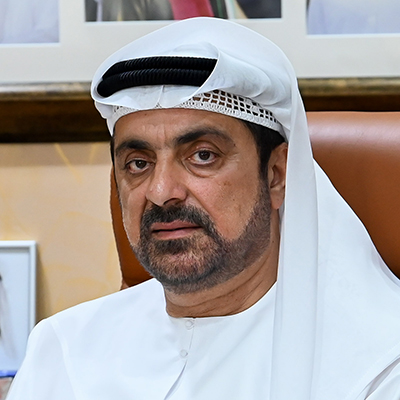

Executive Director, Dubai Corporation for Ambulance Services
Suchitra Bajpai Chaudhary | Chief Reporter
Four minutes. That’s the response time of ambulances in Dubai. It’s the time required for an ambulance to arrive at your doorstep from the moment 998 is dialled. It used to be eight minutes, but when the COVID-19 pandemic peaked in the UAE, Dubai Corporation for Ambulance Services (DCAS) trimmed four minutes from the response time.
In March 2020, DCAS was flooded with calls from the COVID-stricken. Paramedics backed by a modern ambulance fleet rose to the challenge, picking up COVID patients round-the-clock and transporting them to the nearest hospital based on the severity of infections. The paramedics put in more than 12 hours of work a day as the crisis response plan of the ambulance services clicked into high gear.
“The DCAS activated the crisis response plan at the first sign of COVID outbreak,” Khalifa Hassan Abdul Kareem Al Darrai, Executive Director of DCAS, told Gulf News. “The enhanced readiness allowed paramedics to handle COVID-19 cases efficiently. All of them were equipped with the necessary medical tools and trained to take preventive measures to manage the spread of the virus, detect cases early and implement social distancing protocols,” he said.
Attired in Personal Protective Equipment (PPE), the paramedics were swift to reach the patient in ambulances equipped with advanced communication software and sophisticated life-saving equipment. After initial assessment and providing first aid, if required, the patient was transferred to the nearest medical centre. The DCAS carried out the task with agility and thoroughness.
Patients were assessed as asymptomatic or with suspected COVID-19 infections. The cases were classified as mild, moderate or severe. According to the severity of infections, patients were rushed to the closest isolation centre, quarantine centre, field hospital, hotel or COVID-19 ICU.
When the number of cases increased, the Dubai Health Authority mandated that all hospitals in public and private sector accept COVID-19 patients depending on the proximity to the patient. The quick action helped bring medical relief to patients and played a crucial role in containing the spread of the disease in the community.
Amid the feverish activities, all efforts were taken to protect the lives of paramedics, Al Darrai said. “We took all necessary precautionary measures. This included installing sanitisation corridors, setting up thermal scanners at paramedics’ accommodation, and acting to prevent any transmission to protect our heroes. Our main goal was to keep the paramedics and other frontline workers safe so that they could do their job without risking their lives,” he added.
The DCAS officials also worked on a strategy to optimise their fleet of 177 ambulances of Type A, B and C categories. Besides that, the DCAS has several other vehicles to deal with mass casualties. Al Darrai said it required the full participation of public and private sector hospitals and health care services. “We prepared approximately 122 ambulance points across Dubai as well as 24 specialised ambulance vehicles to transport COVID-19 patients. We also coordinated with our strategic partner to activate a private sector role in order to benefit from their human, medical and ambulance resources,” Al Darrai explained.
The collaboration with private-sector health care played a pivotal role in distributing medical equipment and sanitising DCAS vehicles and facilities. And that went a long way in operating at a high standard of excellence.
His Highness Sheikh Mohammed Bin Rashid Al Maktoum, Vice-President and Prime Minister of the UAE and Ruler of Dubai and, Sheikh Mohamed Bin Zayed Al Nahyan, Crown Prince of Abu Dhabi and Deputy Supreme Commander of the UAE Armed Forces, were in constant communication with health officials and frontliners. Such direct feedback from the Dubai and UAE government and Rulers was very inspiring for the paramedics. Al Darrai said, “That was a huge motivation for the paramedics to serve diligently to ensure good health and safety of everyone,” he added.
Sheikh Hamdan bin Mohammed bin Rashid Al Maktoum, Dubai Crown Prince and Chairman of The Executive Council of Dubai, visited the DCAS headquarters and met frontline workers during Eid. “He greeted and thanked them for their services at a difficult time. His visit left a lasting impact on the frontliners, motivating them to do even better,” Al Darrai said.
Khalifa Hassan Abdul Kareem Al Darrai Executive Director, Dubai Corporation for Ambulance Services